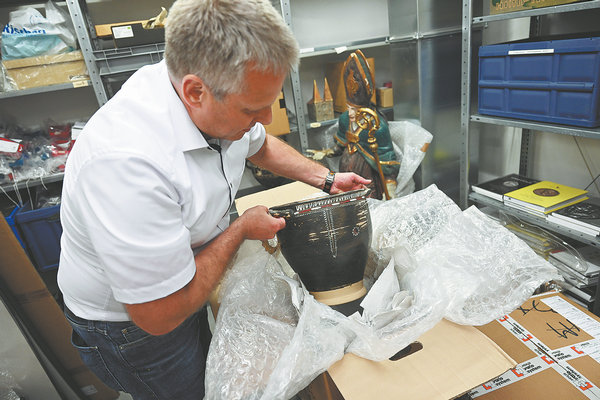

In April last year Glasgow in Scotland announced it would return 17 Benin artifacts from the city's museum collections to Nigeria.
Even the British Museum, which has been under mounting pressure to return artifacts plundered during colonial times, confirmed this year for the first time that it is in "constructive discussions" with Greece over the return of some of the Parthenon marbles.
Proposals for the repatriation of ancient artifacts have been put forward by curators in recent decades but have received little support. However, reluctance in Europe has gradually given way to a certain degree of post-colonial guilt, and governments have begun to reckon with their past crimes and misdeeds.
Wang Yunxia, director of the Institute of Cultural Heritage Law affiliated with the Law School of Renmin University of China in Beijing, said that in recent years Europe has returned many cultural artifacts to former colonies or countries they once occupied.
Wang called this "very inspiring" for the world, a manifestation of respect for global cultural diversity.
"European countries have returned one or two cultural artifacts from time to time in recent decades, but this has been far from a trend," she said, adding that it was France that struck the spark.
In November 2017 France's President Emmanuel Macron addressed students and faculty at the University of Ouagadougou in Burkina Faso.
Claiming to speak in the name of youth, he said: "I cannot accept that a large share of several African countries' cultural heritage is kept in France. … Within five years I want the conditions to exist for temporary or permanent returns of African heritage to Africa."
Marie-Cecile Zinsou, who runs a foundation focused on contemporary African art in Benin, was stunned. "No one knew it was coming," National Geographic magazine quoted her as saying. "It was like a thunderstorm."